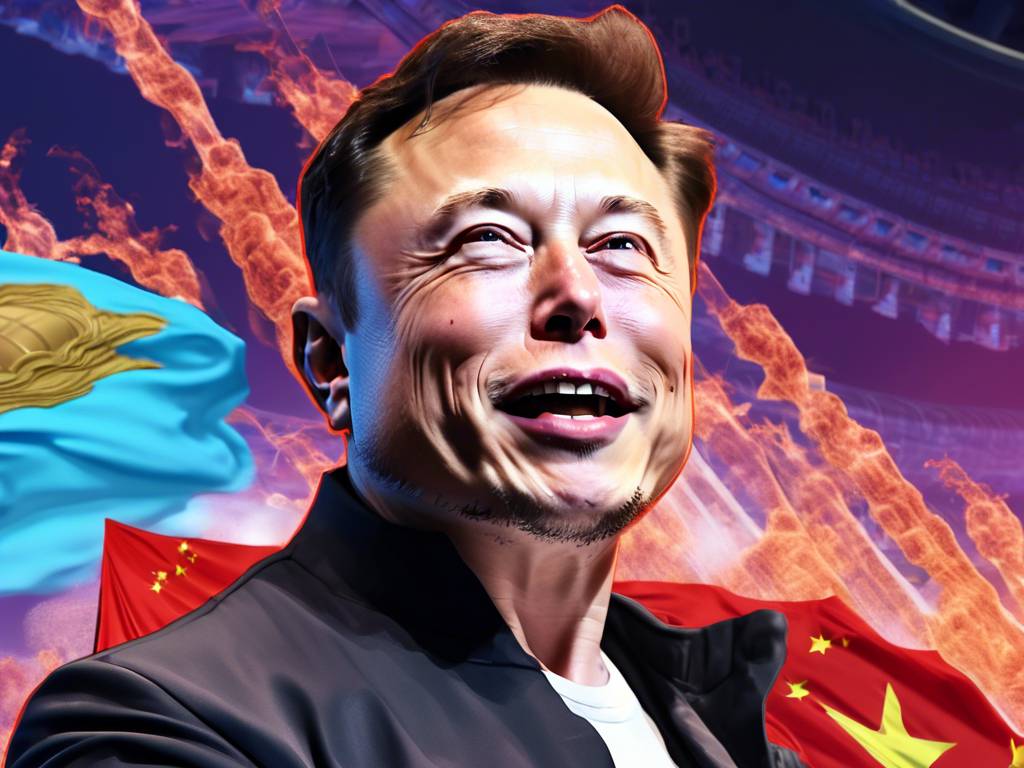**Musk’s Successful Trip to China Leads to Approval for Tesla’s Self-Driving System**
In a surprising turn of events, Elon Musk’s trip to China resulted in Tesla receiving initial approval from Chinese officials to deploy its driver assistance system in the country. This approval came after a mapping and navigation deal was announced with Baidu, and Tesla met requirements regarding data security and privacy issues.
– **Elon Musk’s Productive Visit to China**:
– During a surprise visit, Elon Musk met with Chinese Premier Li Keqiang and cleared two key hurdles for Tesla’s full self-driving system (FSD) in China.
– **Importance of Data Security Approval**:
– Clearing the data security and privacy hurdle was crucial, as Tesla had to assure the Chinese government that user data would be handled in accordance with local laws.
– **Political Implications**:
– The approval can be seen as a positive signal from China amid tensions with the US over data security concerns, especially with the recent restrictions on Chinese-owned app TikTok in the US.
– **Challenges in the Chinese EV Market**:
– Despite the approval, Tesla still faces tough competition in the Chinese market, particularly from local EV manufacturers like BYD, which offer advanced driver assistance systems.
– **Market Analyst’s Perspective**:
– Analysts believe that Tesla’s approval in China signifies a shift in relations between the two countries and highlights China’s willingness to engage with foreign businesses. However, the competition in the EV market remains intense, with Tesla needing to differentiate itself from local players.
**Discussion on Market Trends and Samsung’s Earnings**
As markets continue to react to various factors, including earning reports and the Federal Reserve’s stance on rates, analysts are closely watching the growth in artificial intelligence (AI) sectors and its impact on semiconductor businesses. Samsung, a key player in the semiconductor industry, recently reported a surge in earnings, driven by strong performance in its smartphone and memory chip units. The return to profitability for its semiconductor division is attributed to the rise in demand for AI-related products.
– **Race in AI-Enabled Chip Manufacturing**:
– HighX leads in HBM chips for AI applications, while Samsung is focused on narrowing the gap through increased investments in R&D.
– **Smartphone Profitability**:
– Samsung’s majority operating profit from the smartphone unit indicates a potential recovery in the smartphone market, driven by AI-enabled devices.
– **Future Outlook for Samsung**:
– Analysts foresee continued growth in Samsung’s semiconductor and smartphone businesses, with AI adoption playing a crucial role in driving consumer demand and revenue growth.
– **Market Competition and Opportunities**:
– With increasing demand for AI-enabled devices, companies like Samsung face competition from domestic and international players, necessitating continuous innovation and market differentiation.
**Closing Thoughts on Tesla’s China Approval and Market Trends**
As Tesla secures approval for its self-driving system in China and Samsung reports strong earnings driven by AI-related products, the tech industry continues to evolve rapidly. The intersection of AI, semiconductor manufacturing, and consumer demand is reshaping market dynamics, creating new opportunities and challenges for companies in the tech sector.
In a dynamic market environment, staying abreast of emerging trends and regulatory developments is crucial for investors and businesses alike. As the AI sector grows and transforms various industries, companies need to adapt and innovate to remain competitive in the ever-evolving tech landscape. The approval of Tesla’s self-driving system in China is a significant milestone for the company, signaling its commitment to technological advancement and global expansion.





 By
By
 By
By



 By
By